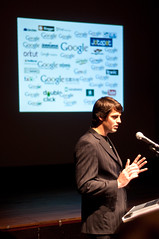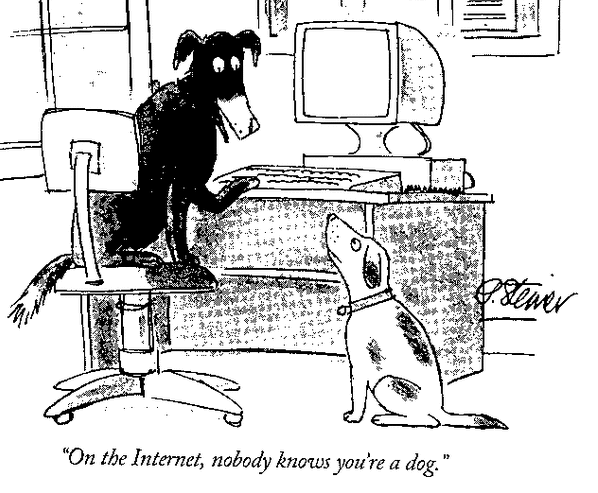Opening lecture of the New Media Masters Graduation Day. University of Amsterdam, 21 September 2010.
 Joris van Hoboken, PhD candidate at the Institute for Information Law at the University of Amsterdam, talked about what Google knows and what Google wants. Google is no longer just a search engine, it is now an extraordinary collection of services. What does it want with all these services? An image of a whiteboard used during one of Google’s brainstorms reveals a desire for Digital World Dominance which may be achieved by providing all the services needed. Google wants to be the most trusted personal service provider. It wants to be the matchmaker of information demand and supply.
Joris van Hoboken, PhD candidate at the Institute for Information Law at the University of Amsterdam, talked about what Google knows and what Google wants. Google is no longer just a search engine, it is now an extraordinary collection of services. What does it want with all these services? An image of a whiteboard used during one of Google’s brainstorms reveals a desire for Digital World Dominance which may be achieved by providing all the services needed. Google wants to be the most trusted personal service provider. It wants to be the matchmaker of information demand and supply.
What Google knows.
Google knows a lot but we don’t really know for sure what it really knows. As a methodology van Hoboken applies the famous concept of the known unknowns, made famous by United States Secretary of Defense Donald Rumsfeld:
There are known knowns. These are things we know that we know. There are known unknowns. That is to say, there are things that we now know we don’t know. But there are also unknown unknowns. These are things we do not know we don’t know.
Google knows your friends and family. Google knows your digital literacy level, it knows how you search and how advanced your search queries are. Google knows if you are paranoid, if you go to the Google Privacy center. Google knows when we are sick, e.g. Google Flu Trends. Google knows when we are voting, e.g. Google General Election 2010. Google knows what we are voting and who we should vote for.
Google knows your unknown knows.

Google knows you’re a dog.
The power of Google is the power to decide which of the known unknowns are real. A problematic issue that needs to be addressed is that Google doesn’t want to take responsibility for what it knows.
More pictures from the Graduation Day on Flickr.
6 thoughts on “Joris van Hoboken – Google knows your unknown knowns”